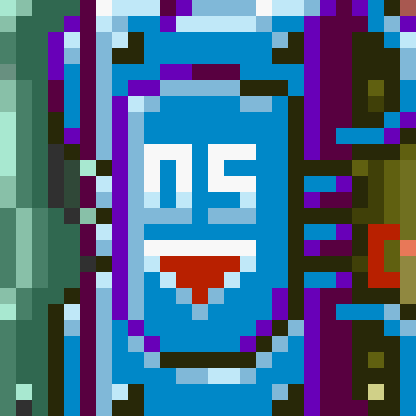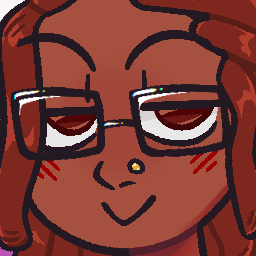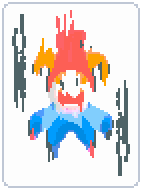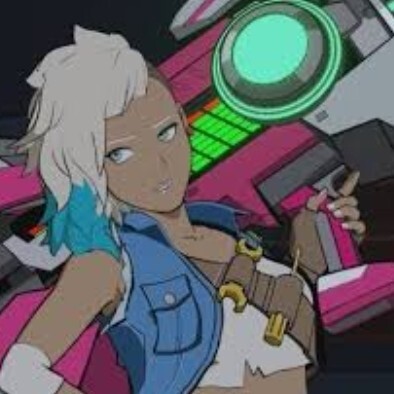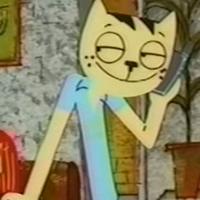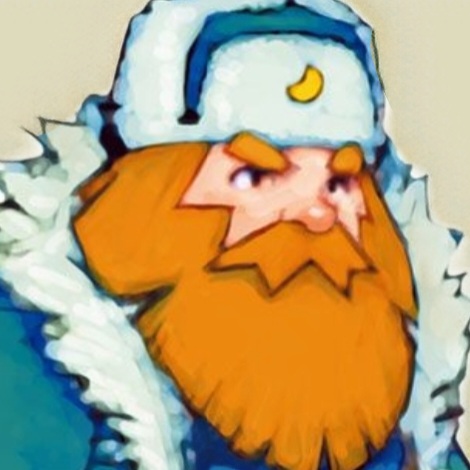Before we start, let's just get the basics out of the way - yes, stealing the work of hundreds of thousands if not millions of private artists without their knowledge or consent and using it to drive them out of business is wrong. Capitalism, as it turns out, is bad. Shocking news to all of you liberals, I'm sure, but it's easy to call foul now because everything is wrong at once - the artists are losing their jobs, the slop being used to muscle them out is soulless and ugly, and the money is going to lazy, talentless hacks instead. With the recent implosion of the NFT space, we're still actively witnessing the swan song of the previous art-adjacent grift, so it's easy to be looking for problems (and there are many problems). But what if things were different?
Just to put my cards on the table, I've been pretty firmly against generative AI for a while, but I'm certainly not opposed to using AI or Machine Learning on any fundamental level. For many menial tasks like Optical Character Recognition and audio transcription, AI algorithms have become indispensable! Tasks like these are grunt work, and by no means is humanity worse off for finding ways to automate them. We can talk about the economic consequences or the quality of the results, sure, but there's no fundamental reason this kind of work can't be performed with Machine Learning.
AI art feels... different. Even ignoring where companies like OpenAI get their training data, there are a lot of reasons AI art makes people like me uneasy. Some of them are admittedly superficial, like the strange proportions or extra fingers, but there's more to it than that.
The problem for me is baked into the very premise - making an AI to do our art only makes sense if art is just another task, just work that needs to be done. If sourcing images is just a matter of finding more grist for the mill, AI is a dream come true! That may sound a little harsh, and it is, but it's true. Generative AI isn't really art - art is supposed to express something, or mean something, or do something, and Generative AI is fundamentally incapable of functioning on this wavelength. All the AI works with is images - there's no understanding of ideas like time, culture, or emotion. The entirety of the human experience is fundamentally inaccessible to generative AI simply because experience itself is inaccessible to it. An AI model can never go on a walk, or mow a lawn, or taste an apple, it's just an image generator. Nothing it draws for us can ever really mean anything to us, because it isn't one of us. Often times, I hear people talk about this kind of stuff almost like it's just a technical issue, as if once they're done rooting out the racial bias or blocking off the deepfake porn, then they'll finally have some time to patch in a soul. When artist Jens Haaning mailed in 2 blank canvases titled "Take the Money and Run" to the Kunsten Museum of Modern Art, it was a divisive commentary on human greed, the nature of labor, and the nonsequitir pricing endemic to modern art. The knowledge that a real person at that museum opened the box, saw a big blank sheet, and had to stick it up on the wall, the fact that there was a real person on the other side of that transaction who did what they did and got away with it, the story around its creation, that is the art. If StableDiffusion gave someone a blank output, it'd be reported as a bug and patched within the week.
All that said, is AI image generation fundamentally wrong? Sure, the people trying to make money off of it are definitely skeevy, but is there some moral problem with creating a bunch of dumb, meaningless junk images for fun? Do we get to cancel Neil Cicierega because he wanted to know how Talking Heads frontman David Byrne might look directing traffic in his oversized suit?
Maybe just a teensy bit, at least under the current circumstances.
I'll probably end up writing a part 2 about my thoughts on stuff like data harvesting and stuff, not sure yet. I feel especially strongly about the whole "AI is just another tool" discourse when people are talking about using these big models, so don't even get me started on that.
Yeah, pretty much. Ai images are just noise, devoid of meaning and content. And "take the money and run" is a transformative piece of work for the 21st century in much the same way as that toilet installation that most people don't get the context of.
My dad had a story he probably made up from being a kid and going on some field trip to an art gallery and one of the paintings was a line across the top of the canvass and a line going down the left side. He used this to illustrate that art that isn't trying to be a photograph is bad. My man can't draw a stick figure well but go off. So at one point I asked what the thought about the other pieces he saw that day and he couldn't remember any. My brother in christ, you've spent over a decade thinking about these lines and can't remember anything else from the gallery? I think we can say it was a pretty good piece of art then.
I think we can say it was a pretty good piece of art then.
god i fucking hate this mentality so much. "you think it sucks but you remember it and not any of the mid stuff you saw around the same time, which makes it good" what a garbage rick and morty framework.
I love that, it's a great example of weird art's effectiveness. : )
Ai images are just noise, devoid of meaning and content.
no i don't think that's accurate. ai art contains signifiers. there's a weird jump that we're tripping on between the prompt and the machine output but even if it is correct to say there's no meaning or content i don't see how that doesn't also apply to marble painting or whatever dogshit cia-funded "art" we're supposed to defend.
It is shocking to me just how small of a distance the solidarity of artists reaches when it comes to being replaced by AI. No matter how much something is "grunt work", it puts food on someone's table. I've seen artists welcome people being replaced by technology when it comes to animators, people working on movie VFX, performing musicians, translators, some types of writers, and just generally wishing it on customer service jobs and factory work. But with artists there is always some pseudophilosophical definition of art that makes your jobs special and uniquely tragic when they are replaced. How are you expecting to build a movement around this?
That's not what I'm talking about at all. My post is about why AI art doesn't make sense even in an ideal world. If we lived in a communist Utopia, damn straight I wouldn't have people manually doing the kinda data entry shit I talked about in my post if it could be helped, that shit sucks! It's soul draining. OCR is literally just reading text in a photo and then typing out that text exactly as you see it, letter for letter, so yeah, I'm pretty happy to see that getting done by a machine. The only possible justification of making humans do this work is to give people jobs, and giving people jobs should not be the ultimate aim of the human race I think.
have u considered that people are stupid and that as a member of an artisan class that artists do not develop class solidarity, BUT in fact this criticism of AI art is valid and correct, and both of those things are true, and AI art would only really have use as a disability accommodation for artists in a communist society. so the problem is simultaneously that artisans are correct in their anger over AI art, and that they should have been angry much earlier on
Who the fuck are you to assume all artists are like that? I oppose any member of the working class losing their jobs due to capitalist automation and profit seeking. Why are you acting like art is some field that is invalid as "work" and seem to be celebrating its destruction? You talk about solidarity, where's yours?
While I agree with all the legitimate and well thought out arguments against AI art, my main reason for opposing it is as follows:
It's ugly, gross, disgusting, and creepy.
That's all I need to say.
Is gen AI not just a tool like anything else?
I'm sure realism artists went through this exact same conversation when photography first started emerging as a new style of art. Or when people first started to trace the outlines of objects they wanted to draw
The amount of labor has 0 bearing on the value or legitimacy of art. The only thing labor provides is that with more labor, you can accomplish more than with less labor
An AI model is not a human but the very barebones of all it's inputs is the culmination of human art. There was a human deciding how to use the gen AI tool to make the art, what adjustments and edits to make to the piece, which ones to discard and which ones to use, etc.
AI art is taking a bunch of human made art and using that as a base to produce something else but is that not how all human made art is? Progressive steps built on top of knowledge and awareness of previously existing human art
As long as people are honest a piece of art was created using gen AI and explicitly label them as such, I fail to see how it's different than Photoshop, Illustrator, Photography, etc.
I feel the issue is everybody is trying to compare gen AI art to current forms of art when it should really be considered in its own categorization
As long as it is being used to replace current forms of art it will invariably be compared to them. A mechanical arm in a factory is very different from a human worker, but we can still compare them when the arm is being used by the capitalists to replace workers.
In terms of cost, speed, and performance, sure, but never in terms of the essence of the resulting work
actually now that I think about it, people do, but that's mostly fetishization of labor because people just feel mighty and superior that they were able to buy something that so many human hours were spent laboring into it, rather than the actual end product
Art is about making decisions. The guy I cited as a real artist literally didn't do anything - mailing in an empty canvas was his decision, so clearly the issue for me isn't the amount of effort involved. The reason I don't like AI isn't just because it's making things "too easy" - I hate it because it represents the minimum possible level of decision-making, the offloading of all creative responsibility to an algorithm. If tomorrow there was some magic brain-scan technology that produced an image directly from your thoughts, put the thing that you were visualizing mentally right on the screen the exact way you were thinking it, that would still be art, in my mind, while GenAI would not be. Once the human involved isn't the one making the calls, you're not an artist any more, you're just an editor.
While I don't think delineating "real art" from mere images is as simple as coming up with the right math formula, I do think that we can get somewhere by looking at how many decisions a human is making versus the decisions they aren't making. For the sake of discussion, let's ignore all the commentary pieces specifically about AI, or for which the lack of any guiding intention is a part of the artistic message, let's just talk about plain old art. The thing that's important to me is that every single piece of an image is a choice - every line, every brush stroke, every pixel. Take, for example, Starry Night - the reason that painting looks the way it does, looks so meaningful, isn't just because van Gogh painted a really pretty town, it's not just about the complete image, but the way that each individual stroke swirls and loops into each other. There were thousands of mutually reinforcing decisions that the artist made there, each movement of the brush was chosen deliberately to reinforce the piece's intended viewing experience. The comparison to current technology is almost comically unfavorable, and while I don't think images created with AI assistance are categorically incapable of being art, the vast majority of this material is indisputably tripe, and I would argue the use of AI in the process does something to taint the final product in many cases.
The problem with fetishizing the specific methods and intentionality of details is how that squares with available tools and materials and the purpose of a piece in the first place. That is, how intentional are details in a photograph? How much thought was put into some fuzzy background bit that's only there because something had to be there? How intentional is some procedurally filled environment in a 3d render? How does mass produced rote decorations like Roman mosaics and statues, or older lost-wax casting fit in? So much of art is in practice just pragmatic methodology: things are reused to save labor and resources, rote actions or patterns are used because they simplify the process of creation or are part of a standard abstract language of a genre, things can be present just because they were available to use, large chunks can be handed off to other workers that are just performing some rote task to follow a description, etc.
Hitting the "give treat" button on some proprietary off-site treatbox with no controls can only produce nonsense, but the actual mechanical stuff that facilitates that can - in an open source and locally-run package - be used in the same manner as prefab models in a render or already-existing places in a photograph.
the vast majority of this material is indisputably tripe
At this point the majority of people interacting with generative AI are techbro dipshits, and most AI art is being churned out by treatboxes with a simple prompt as the only control. Even among the "enthusiast" community most people just use local prompt-only treatboxes because even a basic flowchart UI is "too complicated" for them. I said this in another thread, but I'm heavily reminded of the original proliferation of highly accessible 3d renderer software and how that created a flood of low quality garbage where it's just some prefab model standing in some prefab set with bad lighting and a bad pose, that people tried to turn into "comics" that are just a long progression of single panel pages with speech bubbles. Even now CGI is something that either has to be carefully hidden and blended into film or animation or which occupies its own realm of stylization and accepted conventions, because anything else looks jarring as hell and bad.
Generative AI is that cranked up to 11: a tool where the barrier to reach "this is a picture with a character in it, sort of doing something I guess" is basically nothing. And just like CGI, most uses of it are bad and the good uses are more trying to shortcut off it and then hide its presence than use it directly.
I agree completely. I don't want to use the term "soul" to describe art, because that apparently brings out the inner redditor in quite a few people around here, but AI art lacks intent. It isn't a person making something, having an idea in their head and trying to push out out onto a piece of paper or a canvas, it's someone typing words in and then getting "close enough" picture. There's no deeper meaning, no ability to analyse the decisions made in the creative process, it's just wholly surface level, there's nothing we can understand about the artist or ourselves from looking at AI art. It does nothing except superficially look like the thing it was supposed to look like. Art and media analysis absolutely needs to be actually fucking taught to people, I fucking hate how little people care about art.
My own take is that I have seen nothing which makes palatable the massive energy and resource costs of "AI". I think the question of whether it can be used to make "good art" or not is besides the point.
caution, liquid hot take. Dissent will be ignored.
This goes for whether or not it is done on home hardware. Unironically, ban GPUs from casual home use. Sorry gamers, it's not worth the destruction it brings to the planet. GPUs will require a license and you will like it.
 This will produce a wave of cool pixel games similar to how banning computers in Dune produced Mentats.
This will produce a wave of cool pixel games similar to how banning computers in Dune produced Mentats.It's a solution in search of a problem, like Bitcoin actually.
Many parallels
on one hand, graphics alone don't make good computer games so yeah, sure, fuck them GPU's
on the other hand, my treats!!
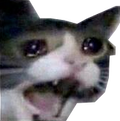
more funny ideas:
1 (one) GPU allowed per domicile and a maximum allowed gridwide, licenses and 10 year waiting lists ahead!
or
only GPU's directly powered by home renewable energy sources, no grid connections allowed
Before we start, let's just get the basics out of the way - yes, stealing
it's not stealing, and it's not intelligence. we can't have a conversation about this or even think about it properly if we're using capitalist ideas about ownership and advertising copy definitions of terms. obviously the corporations are in the wrong, but it's apparently pretty easy to spin up your own model on a GPU that a lot of people own so there's more here to unpack than the surface level luddist anticapitalism.
I'll just say i see a lot of idealism in here and doing something with a computer doesn't make it different from doing it by manually- like if i shredded a bunch of prints and then made an unrelated mosaic with the pieces where you could still identify part of mona lisa's eye.
This so colossally misunderstands every fucking point I made, nothing you said here is correct. Just to enumerate:
- Yeah, it is fucking theft if it happens under capitalism. The whole first paragraph was getting present day conditions out of the way before I indulged in hypotheticals. Pretending like it's "wrong" to try and hold ownership over your own work is just a total non-sequitir if we're discussing present day capitalist conditions, for reasons I should hope are completely obvious to any Hexbear native.
- I'm using the industry-accepted term that everyone already knows and uses, I'm not going to weigh down my writing with a bunch of air quotes. My whole fucking point with this is that it's not intelligent.
- It's still wrong if you as an individual make your own model instead of using the corporate AI. If you're using the same training sets full of internet art to churn out AI art, or a pre-trained model which makes use of those, I'm still going to look down on you. I know we're all pro-piracy here, and I am too, but it's different when you do it to normal people.
- It sounds like you're being deliberately obtuse here. The whole reason why AI sucks at art is that it represents the deliberate lack of choice, the absence of human intervention. The only reason you should be asking AI to make something for you is if you genuinely don't give enough of a shit to shape that part of your work yourself. Like, sure, if you didn't want to do a bunch of sand and dirt textures for your video game, go ahead I guess, nobody's out there pouring their soul out by deciding the exact arrangement of rocks on the floor, but for anything else it just feels counterproductive. The vast majority of my friends are digital artists, I certainly have no issue with computers, it just sounds like you're trying to avoid engaging with my points. The only way to make AI art into real art is to add the humanity back into it, and I don't see many artists doing that sort of thing. Most so-called "AI artists" I've seen just retry until they get an image they like, take the one they liked most, feed it back in with some stuff they wanna change highlighted purple, maybe photoshop out the shitty hands if they're really going the distance, and then they're done. I get that the definition of art is subjective and all, but it just isn't enough to clear the bar for me when the AI is making like 90% of the decisions and doing 95% of the work, and most people are not putting in that level of effort to begin with.
not gonna rehash things we fundamentally disagree on a third time
It sounds like you're being deliberately obtuse here. The whole reason why AI sucks at art is that it represents the deliberate lack of choice, the absence of human intervention.
i dunno, man "the deliberate lack of choice, the absence of human intervention" sounds pretty artistic to me, looking around at the kind of meta slop we consider to be art.
Your post reminds me a bit of a recent Trashfuture podcast episode where the hosts were talking about the AI Willy-Wonka fiasco in Scotland or wherever that was, and a point they made was that the only endearing or worthwhile thing about it was the humor and "soul" of real humans trying to work with ridiculous AI garbage.
I mostly just hate AI "art" because most of what I've seen has been godawful, and its proponents are usually off-putting douches. A more abstract and long-term concern I have is a sort of self-sabotage of human artistic ability, where we take art out of the hands of humans and what we actually make ourselves and make it all just prompts for the AI to crap out. Humans can make art themselves with enough practice, even people who are "untalented" get appreciably better with enough practice, I've literally seen it. I don't want people to have this attitude where they rule themselves out and act like there's no point in learning because they can just lean on some AI model.
Thank you for that second point! I've had people try to tell me it's "no big deal" but it really is. Imagine being a 13 year old wanting to learn to draw, but your terrible looking anime scribbles get no attention, while someone typing a prompt into an AI gets tons of people commenting on it and complimenting it. It's a shortcut to quick and easy "success" and a lot of kids, I'd say almost all of them, would rather do the quick route rather than spending hundreds of hours learning to draw. One of the biggest hurdles in becoming an artist is learning not to compare your stuff to others, both in quality and in output. Artists just starting out will inevitably compare their work to others, and how can a beginner compete with AI art that can be produced en-masse in an instant? It's quicker and easier to use AI art, but there's no skill to be learned, it's turning what could be a rewarding hobby into yet another treat machine designed to distract.
https://web.mit.edu/allanmc/www/benjamin.pdf
Probably my favourite art theory essay, Walter Benjamin's 1935 The Work of Art in the Age of Mechanical Reproduction. He looks at what was lost from art as increasingly complex levels of industrialism allowed for it to become an interchangeable commodity instead of something with cultic significance to a group. Art in the Age of Algorithmic Reproduction hasn't reversed that at all, only intensifying the things that profane the sacred.
Even if a company invested billions of dollars into the world's most revolutionary AI art generator, something that could infinitely outperform any human, I wouldn't pay $1 for its work. It's no more unique and special than any individual pattern in a kaleidoscope, but even those reflect a conscious choice to load more red beads than blue. If it makes a character that has no more value than me pressing "generate random" on an RPG character creator. If it writes a book, I'm not going to buy that book because I could just as easily make it generate my own version where I'm the special boy. I'll look down on any "artist" who uses it like I would a plagiarist and steal their work on principle.
The crap these things churn out isn't art it's pictures. Nobody is making art to decorate the top of a post on Nancy's baking blog or whatever, "AI" or otherwise.
I am sure at some point we will get an actual piece of art generated using these tools, that will be an interesting conversation indeed
The one place where I think AI has some sort of artistic value, although it might be more accurate to call it sociological value, is not in the art it generates. That’s garbage; if you need a thumbnail for your YouTube video, pay a twitter artist $40 to make it. The value is in using the database to generate collective reflections of how society/artists illustrate particular ideas, phrasings, concepts in a way that one individual artist couldn’t.
Like, my kid was watching a video showing what the AI Art program spat out when asked to make an “American image” but kept using more and more extreme/ridiculous/over the top adjectives for how American they wanted it. The individual pieces of art were crap, but the evolution of how it depicted “even more American” was fascinating. This was just a silly YouTube experiment, if someone did this sort of thing but with more serious intent than David Byrne directing traffic, it could generate some decent discussion pieces.
i think the thing about AI art is that it really lays bare how alienated we really are from the means of production, that people are so unwilling to inject any amount of human effort and would rather have something created for them by a proprietary piece of software than ever suffer the embarrassment of even trying to create something, which only further feeds back into that alienation. It's telling that one of the very first things to come out of AI art as a 'movement' is stuff like NFTs - the most low grade, mass producible 'art' possible, solely aimed at trying to extract money from other people.
I'm also reminded constantly about the late 2000s/early 2010s discourse around 'video games are art' - in that a lot of this discussion is less about wanting to take a medium and genuinely bring it to a place where you can engage with it through artistic critique, and more wanting to steal a label and the perceived 'respect' of that label as a means to justify a consumer product
that people are so unwilling to inject any amount of human effort
nah i'm tired and don't have thousands of hours to learn a skill just to make something*. you could say the same thing about wordprocessors taking away from writing, stand mixers taking away from baking, or cad and 3d printers from other kinds of making.
*i don't actually have a use right now for generated art but maybe someday there'll be a blender plugin and i can dodge learning how baking textures actually works or something applicable to stuff i do work on.
i don't necessarily agree it's the same thing as those examples, as the difference here is that the AI has to pull the art from somewhere i.e. directly from work someone else has done - if we're talking writing, then you'd have to compare it to AI-written articles, or to plagiarising someone else's novel for your own, both of which I feel the same way about
the closest 'real world' example i'd say is maybe something like Collage, and sure that's pulling from all sort of sources and I don't think it's any less valid for it, but at least there is something to be said about the person having to make decisions about what to use, where to place things that I just don't see as comparable to AI art. But again, just my opinion.
yeah i'm just not understanding why collage with a computer is different from collage by hand other than the usual labor savings of any automated process.
It's something I've been grappiling with. I think part of the issue is reality butting up against what I think society and money and IP and art should ideally look like. AI art for a meme or personal use? Who cares. AI art for profit just to churn out garbage? Sure that's bad, but that's not the fault of the technology or the individuals, that's just an incentive of capitalism to make money and fuck the consequences. Hell, plenty of real artists make garbage they have no passion for because that's what makes money, the only difference is how quick they can churn it out vs a computer. And while I think being obsessed with your own intellectual property is lame, would you want your passion projects to be turned into slop by a machine? Would you want art that comes from your heart that you release for free to just become sludge that a robot eats to shit out content for grifters to sell? Or should I care if other people want to eat slop and pay for the privilege? If I don't care about IP laws then thems the breaks. Maybe that's something artists have always had to deal with; people not respecting their art in the way they want them to and AI really is nothing new. Or what if that AI then gets used to generate propaganda or used to spread misinformation and your art contributed to its ability to effectivelydo so? Is that even something random artists should reasonably be worried about or does that only effect relatively well off people in the first world? Should that matter or affect my opinion? Hell if I know!
I think this false start with "AI" has actually brought up a far more interesting question, one that people seem to not even have the language for and are incapable of naming it even through they can feel it now more than ever. What's the problem with AI art? That it turns human passion into slop and content and roboshit that appeals to the lowest common denominator? We've had aggressively anti-human, profit motivated art for a while now already. What else is new? This is just one more pimple on capitalism's ass.
We've had aggressively anti-human, profit motivated art for a while now already. What else is new?
At least before now, there was always some human as part of the creative process. Someone could find a way to take their boring, conformist TV show or movie or whatever and at least try to push it at least a little in the direction of being truer to their own personal experiences or more meaningful in at least little ways. Even with the meddling suits, at least something could be done. The idea of AI art is to cut out all those pesky "creatives" and let the business guys finally decide for themselves exactly what they want, and that just sounds bleak.
Generative AI isn't really art - art is supposed to express something, or mean something, or do something, and Generative AI is fundamentally incapable of functioning on this wavelength.
I would like to guzzle soylent and shove the hubble space telescope into my navel for a moment to say that the images produced by generative AI are still art, but not art borne of the AI itself. Since, as mentioned, the AI has no consciousness, is not alive, and is only but a tool similar to a cement mixer.
However, the artwork in its training dataset was produced by humans with consciousness, and the MCdonalds drive through order input given to it for guidance was written by a human. This property leads to a convolution operation where all relevant artwork from the training dataset is mashed together, modulated by the drive thru order.
As such, the original intents of each of the works are mangled beyond recognition and stitched back together along the lines of the intent held by the orderer, so a bit of a chimera of artistic communication.
It still sucks ass though because if everyone suddenly stopped producing art and instead just generated art using these AI models, they would all eventually fail, because AI using AI-generated art from a previous iteration in the training dataset slowly destroys the subsequent iterations.
In essence, the whole industry will collapse I hope because it will end up poisoning itself to death by eating its own shit.
Yeah I obviously can't really argue with that. I just prefer to say they aren't real art because it's more impactful I guess.
Yeah you're technically correct still, I just pointed out something very pedantic but in general terms, you're 100% correct that the AI didn't do the art.
And it takes away a lot of control that an artist would otherwise have, since afaik when you put in an order to something like this, you can't specify the minute details that a skilled artist would have factored in. Fun gimmick, but completely outclassed by a human artist.
These AI art posts always make for interesting struggle sessions. Full disclosure: I don't understand what art is and I feel like any definition is an assertion rather than an explanation. And that's fine really, I'm not the dictionary police, but I think it's worth realizing that we're mostly talking about culture here.
Like, would it have been art if instead of blank canvases, Jens sent the museum an AI generated picture of what they were asking for?
